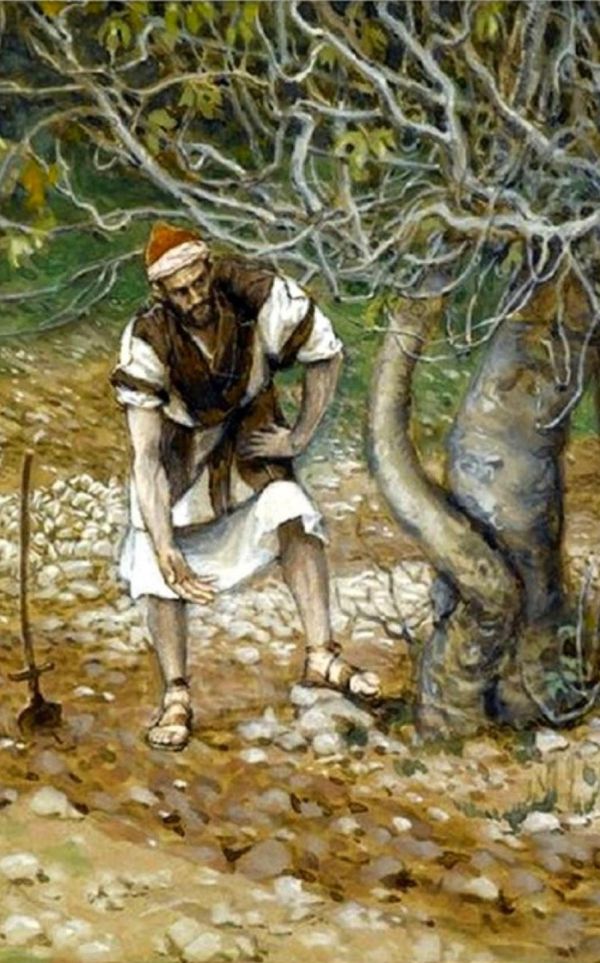Conversion and Times
(Lk 13:1-9)
Conversion refers to a process that shakes the soul, due to an Encounter. A ‘meeting’ that opens to the knowledge of ourselves.
A dialogue that projects minds and actions onto reality and the Mystery, which ceaselessly refer to a new Exodus.
Even today, the swampy counterpart of the life of Faith wedges itself like a constant woodworm, and is symbolized by an arid confrontation, expressed in the absence of fruit on an unnecessarily leafy tree.
The ‘vineyard’ is an icon of the chosen people and the ‘fig tree’ of its central prosperity. Here evokes the Temple, in particular its liturgical nucleus: the Sanctuary.
The cult that took place in the sacred of the vast area of Mount Zion had to express the praise of a people who were constantly listening, called to a life of sharing and fraternity.
The delicious fruits that the Lord was waiting for should have been sweet and tender (like figs), but they were hard and inedible. The Call had been dropped on deaf ears.
The many and showy "leaves" of the most devout rite didn’t celebrate a life of welcome and understanding, rather tended to hide the bitter berries of a style in no way conforming to the divine plan.
We ask ourselves: how much time do we have available to amend and not regress, living fully the present?
Is the Father's governmental action punitive or only responsible and life-giving?
In the parable of the sterile fig tree we learn: the only condition that can change a history of infertility and squalor - as well as the danger of formalism - is the time still needed to assimilate the Word.
Forward process, linked to the unpredictable way in which the vital call of the Seed and the particular reaching out of its roots intertwine with the earth of the soul, then overflowing in relation to the events.
Appeal that never ceases, in the reverb of which is elaborated and strengthened the change of mentality that introduces into conviviality and into the plan of liberation for an alternative world: the Kingdom of God.
After the three years of the Son's public life, there is a "fourth year" that extends to the history of the Church (vv. 7-9).
It does not want to conceal the luxuriance of life but to make it blossom, and without ceasing recalls a flourishing growth; for a feeling of Family with sweetest fruit, which is not satisfied with external practices.
As the encyclical Brothers All points out, the Lord still dreams of a «plan that would set great goals for the development of our entire human family» (n.16).
For this purpose «we need to think of ourselves more and more as a single family dwelling in a common home. Such care does not interest those economic powers that demand quick profits» (n.17).
The hasty logic - as well as the epidermal rush of the society of events - creates inequalities, not only in the commercial field.
In short, everything becomes an opportunity for the Eternal’s flowering and action ground, history that is truly ours: teaching of authentic theology and humanization - if the people’s story unfolds ‘on the way’.
The God of religion has his own claims and doesn’t appear long-suffering. The Father of Jesus knows how to wait. He does not get angry, he does not give in to the frenzy of blow for blow. He is not disinterested, but not complain; nor take revenge.
He proposes solutions.
In doing so He will not cause irreparable trouble - indeed will astound us. For a new Spring, in which the fig tree gives its unrepeatable sugary, juicy and highly energetic Fruit - before the many leaves.
So that ‘fraternity’ does not «remain just another vague ideal» (n.109).
[Saturday 29th wk. in O.T. October 26, 2024]












